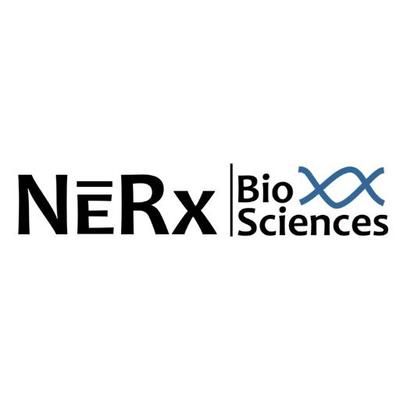预约演示
更新于:2025-05-07
ERCC4 x ERCC1
更新于:2025-05-07
关联
2
项与 ERCC4 x ERCC1 相关的药物作用机制 ERCC1 inhibitors [+1] |
在研适应症 |
非在研适应症- |
最高研发阶段临床前 |
首次获批国家/地区- |
首次获批日期1800-01-20 |
作用机制 ERCC1 modulators [+1] |
在研适应症- |
非在研适应症- |
最高研发阶段临床前 |
首次获批国家/地区- |
首次获批日期1800-01-20 |
100 项与 ERCC4 x ERCC1 相关的临床结果
登录后查看更多信息
100 项与 ERCC4 x ERCC1 相关的转化医学
登录后查看更多信息
0 项与 ERCC4 x ERCC1 相关的专利(医药)
登录后查看更多信息
483
项与 ERCC4 x ERCC1 相关的文献(医药)2025-04-24·Nature
Comprehensive interrogation of synthetic lethality in the DNA damage response
Article
作者: Schröder, Markus S ; Corn, Jacob E ; Schlapansky, Moritz F ; Kobel, Lena ; Cejka, Petr ; Fielden, John ; Lam, Simon ; Jackson, Stephen P ; Gallagher, Danielle N ; Siegner, Sebastian M ; Dello Stritto, Maria Rosaria ; Jost, Marco
2025-03-01·Aging Cell
The Ercc1−/Δ mouse model of XFE progeroid syndrome undergoes accelerated retinal degeneration
Article
作者: Hauswirth, William W. ; Niedernhofer, Laura J. ; Windschitl, Caeden ; O'Kelly, Ryan D. ; Yousefzadeh, Matthew J. ; Johnson, Laura L. ; Angelini, Luise ; Skowronska‐Krawczyk, Dorota ; Narasimhan, Akilavalli ; Cho, William ; Min, Seok Hong ; Robbins, Paul D. ; McLoon, Linda K. ; Roehrich, Heidi ; Her, Tracy K.
2025-02-01·Fundamental & Clinical Pharmacology
The synergy between alkylating agents and ERCC1–XPF inhibitors is p53 dependent
Article
作者: Elmenoufy, Ahmed H. ; Tuszynski, Jack A. ; Weinfeld, Michael ; Pedro, Tiago Marques ; Dumontet, Charles ; Ciniero, Gloria ; Jordheim, Lars Petter ; Gentile, Francesco ; Cros‐Perrial, Emeline ; West, Frederick G.
2
项与 ERCC4 x ERCC1 相关的新闻(医药)2024-12-05
·药学进展
“
点击蓝字 关注我们
哈医大肿瘤医院蔡莉教授团队揭示肺腺癌化疗耐药的新机制 PPS
肺腺癌(LUAD)是致死率最高的癌症之一,具有早期诊断困难、复发率和转移率高、预后不佳等特点。根据分期的不同,LUAD的治疗方法也各不相同,包括手术、化疗、放疗、靶向治疗和免疫治疗。大多数LUAD病例确诊时已是晚期,无法手术,治疗手段有限;因此,化疗仍是治疗LUAD的一线策略。包括顺铂在内的铂类化合物,仍然是LUAD化疗的基石药物。顺铂通过在癌细胞中形成DNA-铂加合物和刺激凋亡信号,为患者带来了显著的生存获益;然而,顺铂耐药限制了其治疗效果,并导致LUAD患者癌症的复发。
11月18日,哈医大肿瘤医院蔡莉教授团队在Advanced science(IF:14.6)期刊在线发表了题为m6A-Modified SNRPA Controls Alternative Splicing ofERCC1 Exon 8 to Induce Cisplatin Resistance in Lung Adenocarcinoma的研究成果。研究发现,小核核糖核蛋白A(SNRPA)是一种可能参与调节铂类化疗耐药性的可变剪接基因。本研究中,研究人员发现通过CRISPR/Cas9和shRNA技术敲除或敲低SNRPA均可逆转铂耐药性LUAD细胞对铂的耐药性。SNRPA过表达增强铂敏感LUAD细胞的耐药性。RNA-seq分析显示,SNRPA与DNA损伤修复有关,并且能够调控ERCC1的8号外显子跳跃性可变剪接。靶向ERCC1第8外显子的siRNA逆转了SNRPA增强的铂耐药性和DNA损伤修复。此外,研究人员发现ELAVL1在SNRPA依赖的情况下促进了顺铂耐药性、DNA修复和ERCC1-E8 (+)转录本的表达。在小鼠异种移植瘤模型中,通过CRISPR敲除SNRPA基因,增强了LUAD细胞对铂的敏感性。这些发现有助于为肺癌的个性化治疗提供新思路。
95%以上的人类蛋白质编码基因中都存在可变剪接(AS),它是进化的主要驱动力,也是蛋白质组多样性的主要原因。与癌症相关的剪接失调会增加细胞增殖、抑制细胞凋亡、促进转移潜能、实现免疫逃避并诱导治疗抵抗。m6A修饰(N6-甲基腺苷修饰)是一种常见的RNA修饰,广泛存在于真核生物的mRNA中,并在化疗耐药中扮演了关键角色。然而,m6A修饰与可变剪接在化疗耐药中确切作用和机制尚未充分阐明。
在本研究中,研究人员得到如下结论:m6A识别蛋白IGF2BP1能够招募RNA稳定蛋白ELAVL1蛋白,继而与SNRPA mRNA结合,增强SNRPA mRNA的稳定性。上调的SNRPA促进了ERCC1-E8(+)转录本的表达,ERCC1-E8(+)包含外显子8,负责编码ERCC1蛋白的Sec253-Gly258氨基酸序列,而该段氨基酸序列涉及了ERCC1与XPF蛋白结合域HhH2(Arg234-Leu294)区段,ERCC1-E8(+)转录本上调促进ERCC1-XPF二聚体的生成,该二聚体能够促进包括核苷酸切除(NER)、同源重组(HR)和交联(ICL)修复在内的多种DNA损伤修复,最终诱导LUAD顺铂耐药。反之,当m6A修饰的SNRPA低表达时,8号外显子缺失型的ERCC1-E8(-)转录本的表达上调,该转录本编码的ERCC1-E8(-)蛋白失去与XPF蛋白结合域,抑制了ERCC1-XPF二聚体的生成,抑制DNA损伤修复,最终使得LUAD细胞对顺铂敏感。
综上所述,这些发现增加了对SNRPA的功能、机制和表观遗传调控机制的了解,揭示了SNRPA在铂类药物耐药性中的作用,从而为对抗化疗耐药性提供了潜在的治疗靶点。
该研究的所有作者均来自哈医大肿瘤医院乳腺内科二病房。
原文链接
https://onlinelibrary.wiley.com/doi/10.1002/advs.202404609
文章来源:哈尔滨医科大学
美编排版:何裕爽
文章审核:隋艾蓉 何裕爽 罗琪
【免责声明】以上内容来源于互联网,不代表本平台立场或观点;如有侵犯作者著作权,请及时与我们联系(Tel:025-83271227,或直接在微信平台留言),我们将及时更正或删除。
《药学进展》杂志由国家教育部主管、中国药科大学和中国药学会共同主办,中国科技核心期刊(中国科技论文统计源期刊)。刊物以反映药学科研领域的新方法、新成果、新进展、新趋势为宗旨,以综述、评述、行业发展报告为特色,以药学学科进展、技术进展、新药研发各环节技术信息为重点,是一本专注于医药科技前沿与产业动态的专业媒体。
《药学进展》注重内容策划、加强组稿约稿、深度挖掘、分析药学信息资源、在药学学科进展、科研思路方法、靶点机制探讨、新药研发报告、临床用药分析、国际医药前沿等方面初具特色;特别是医药信息内容以科学前沿与国家战略需求相合,更加突出前瞻性、权威性、时效性、新颖性、系统性、实战性。根据最新统计数据,刊物篇均下载率连续三年蝉联我国医药期刊榜首,复合影响因子1.216,具有较高的影响力。
《药学进展》编委会由国家重大专项化学药总师陈凯先院士担任主编,编委由新药研发技术链政府监管部门、高校科研院所、制药企业、临床医院、CRO、金融资本及知识产权相关机构近两百位极具影响力的专家组成。
联系《药学进展》↓↓↓
编辑部官网:pps.cpu.edu.cn;
邮箱:yxjz@163.com;
电话:025-83271227。
欢迎投稿、订阅!
往期推荐
“兴药为民·2023生物医药创新融合发展大会”盛大启幕!院士专家齐聚杭城,绘就生物医药前沿赛道新蓝图“兴药强刊”青年学者论坛暨《药学进展》第二届青年编委会议成功召开“兴药为民·2023生物医药创新融合发展大会”路演专场圆满收官!校企合作新旅程已启航
我知道你在看哟
免疫疗法临床2期临床1期信使RNA基因疗法
2024-11-19
·今日头条
【导读】
选择性剪接(AS)可产生蛋白质多样性,并被癌细胞利用以促进肿瘤进展和对多种癌症疗法(包括化疗)的耐药性。
11月18日,哈尔滨医科大学蔡莉教授团队在期刊《Advanced Science》上发表了研究论文,题为“m6A-Modified SNRPA Controls Alternative Splicing of ERCC1 Exon 8 to Induce Cisplatin Resistance in Lung Adenocarcinoma”,本研究中,研究人员发现通过CRISPR/Cas9和shRNA技术敲除或敲低SNRPA均可逆转铂耐药性肺腺癌(LUAD)细胞对铂的耐药性。SNRPA过表达增强了铂敏感性LUAD细胞的耐药性。基因本体(GO)分析显示,SNRPA与DNA损伤修复有关。靶向ERCC1第8外显子的siRNA(ERCC1-E8 (+))逆转了SNRPA增强的铂耐药性和DNA损伤修复。此外,研究人员发现IGF2BP蛋白和由IGF2BP1招募的ELAVL1蛋白与SNRPA mRNA结合。ELAVL1在SNRPA依赖的情况下促进了铂耐药性、DNA修复和ERCC1-E8 (+)表达。在小鼠异种移植模型中,SNRPA敲除CRISPR增强了LUAD细胞对铂的敏感性。
总的来说,这项研究阐明了SNRPA在铂类药物耐药中的作用,从而为可能提高化疗敏感性和改善LUAD患者预后的新途径提供了依据。
https://onlinelibrary.wiley.com/doi/full/10.1002/advs.202404609
背景知识
01
肺腺癌(LUAD)是致死率最高的癌症之一,其特征是早期诊断困难、复发率和转移率高、预后不佳。根据分期不同,LUAD的治疗方法也不同,包括手术、化疗、放疗、靶向治疗和免疫治疗。大多数LUAD病例在晚期被诊断出来,无法手术治疗,治疗选择有限;因此,化疗仍然是治疗LUAD的主要策略。铂类化合物,包括顺铂,仍然是LUAD化疗的基础。通过形成DNA-铂复合物和刺激癌细胞的凋亡信号通路,顺铂治疗为患者提供了显著的生存优势;然而,顺铂耐药限制了其治疗效果,并导致LUAD患者的癌症复发。因此,发现可靠的预测顺铂反应或耐药的指标以及更深入地了解顺铂化疗耐药的分子机制是至关重要的。
除了内在原因外,LUAD中顺铂耐药还可以通过各种机制获得。顺铂主要靶向染色体DNA,导致大量DNA损伤,阻碍转录和复制。为了修复顺铂引起的DNA损伤,细胞激活DNA损伤反应(DDR)并启动一系列复杂的机制,包括DNA损伤修复途径。实际上,顺铂引起的DNA损伤在多种癌症中,包括肺癌,都是通过核苷酸切除修复(NER)、跨链交联(ICL)修复、错配修复(MMR)、同源重组(HR)和非同源末端连接(NHEJ)进行修复的。先前研究发现,TRIM44增强BRCA1介导的同源重组,通过对FLNA的去乙酰化作用促进顺铂化疗耐药。
结构特异性内切酶ERCC1-XPF是一种多功能异二聚体,对于DNA损伤修复至关重要,包括NER、HR和ICL修复。ERCC1表达水平升高与多种恶性肿瘤(包括LUAD)在接受顺铂治疗后较差的治疗结果相关。通过抑制ERCC1和XPF之间的蛋白质-蛋白质相互作用,这种抑制剂增强了LUAD细胞对铂类药物的敏感性。然而,控制ERCC1和XPF之间相互作用的具体因素和分子机制仍有待完全阐明。
SNRPA增强LUAD细胞体外和体内顺铂耐药
02
为了研究SNRPA是否与顺铂诱导的获得性耐药有关,研究人员评估了顺铂处理的LUAD细胞中SNRPA的表达水平。研究人员观察到顺铂敏感的A549和H1299细胞在顺铂剂量增加或治疗时间延长后SNRPA表达逐渐增加,这表明了剂量和时间依赖关系。此外,与顺铂敏感的亲本相比,顺铂耐药细胞(A549/DDP和H1299/DDP) SNRPA表达显著增加。
SNRPA的耗竭逆转了顺铂耐药细胞的顺铂化学耐药
因此,在功能研究中,顺铂耐药细胞被用来建立功能丧失模型,而亲代LUAD细胞被用来建立功能获得模型。利用CRISPR/Cas9技术,研究人员通过慢病毒构建成功敲除了A549/DDP中SNRPA缺失的CRISPR克隆的SNRPA mRNA和蛋白水平,并与CRISPR阴性对照克隆(NC)进行了比较。为了提高研究结果的有效性,研究人员设计了靶向SNRPA的特异性shRNA,以及阴性对照,并将其转染到H1299/DDP细胞中。值得注意的是,在没有顺铂治疗的情况下,SNRPA敲低和敲除均未影响化疗耐药LUAD细胞的增殖、凋亡或DNA损伤。同样,未经顺铂治疗的体内实验显示,敲除SNRPA不影响肿瘤生长。
与预期一致,当顺铂浓度逐渐增加时,SNRPA敲除细胞显示出较低的50%抑制浓度(IC50)。与这些发现一致,H1299/DDP细胞对顺铂的耐药性被逆转。流式细胞术和蛋白质免疫印迹实验检测SNRPA缺失对顺铂诱导的细胞凋亡的影响。SNRPA沉默明显增加了顺铂处理的A549/DDP细胞的凋亡比例,这与抗凋亡蛋白Bcl-2的表达下降和促凋亡蛋白BAX的表达上升相吻合。与注射NC细胞的NC组相比,SNRPA基因敲除使裸鼠腋窝区LUAD细胞的顺铂耐药性减弱,表现为荧光素酶活性降低,肿瘤体积减小,肿瘤重量减轻。在来自异种移植物的连续组织切片中,免疫组化染色显示,与NC组相比,KO组的标本中BCL2表达减少,BAX表达增加。
研究人员通过慢病毒感染成功建立了稳定的SNRPA过表达克隆,并通过定量实时聚合酶链反应(qRT-PCR)和蛋白质免疫印迹实验分析验证了这一结果。CCK-8、菌落形成和EdU测定用于评估顺铂的细胞毒性。CCK-8结果显示,SNRPA过表达诱导A549和H1299细胞对顺铂耐药。在顺铂治疗条件下,通过菌落形成实验和EdU实验评估细胞增殖情况。流式细胞术和蛋白质免疫印迹实验分析表明,SNRPA过表达可抑制顺铂诱导的细胞凋亡。与体外结果一致,稳定的SNRPA过表达克隆(SNRPA)形成的自发异种移植物肿瘤比对照组(Ctrl)表现出更高的荧光素酶活性,肿瘤体积和重量也更大。然而,在不使用顺铂治疗的情况下,SNRPA过表达不影响体外LUAD细胞增殖、凋亡或DNA损伤以及体内肿瘤生长。基于这些发现,研究人员认为SNRPA可诱导LUAD患者产生顺铂耐药。
研究意义
03
本研究不仅揭示了SNRPA在顺铂耐药中的生物学功能和机制作用,而且揭示了ELAVL1在调节化疗敏感性中的一种新的调节功能。这些发现有助于为靶向选择性剪接和m6A修饰的个性化治疗铺平道路。
【参考资料】
https://onlinelibrary.wiley.com/doi/full/10.1002/advs.202404609
【关于投稿】
转化医学网(360zhyx.com)是转化医学核心门户,旨在推动基础研究、临床诊疗和产业的发展,核心内容涵盖组学、检验、免疫、肿瘤、心血管、糖尿病等。如您有最新的研究内容发表,欢迎联系我们进行免费报道(公众号菜单栏-在线客服联系),我们的理念:内容创造价值,转化铸就未来!
转化医学网(360zhyx.com)发布的文章旨在介绍前沿医学研究进展,不能作为治疗方案使用;如需获得健康指导,请至正规医院就诊。
热门推荐活动 点击免费报名
🕓 上海|11月21日-24日
▶ 第七届上海国际肿瘤内科学论坛
🕓 全国|2024年12月-2025年03月
▶ 中国转化医学产业大会
🕓 上海|2025年02月28日-03月01日
▶ 第四届长三角单细胞组学技术应用论坛暨空间组学前沿论坛
点击对应文字 查看详情
临床申请免疫疗法信使RNAsiRNA放射疗法
分析
对领域进行一次全面的分析。
登录
或

生物医药百科问答
全新生物医药AI Agent 覆盖科研全链路,让突破性发现快人一步
立即开始免费试用!
智慧芽新药情报库是智慧芽专为生命科学人士构建的基于AI的创新药情报平台,助您全方位提升您的研发与决策效率。
立即开始数据试用!
智慧芽新药库数据也通过智慧芽数据服务平台,以API或者数据包形式对外开放,助您更加充分利用智慧芽新药情报信息。
生物序列数据库
生物药研发创新
免费使用
化学结构数据库
小分子化药研发创新
免费使用

